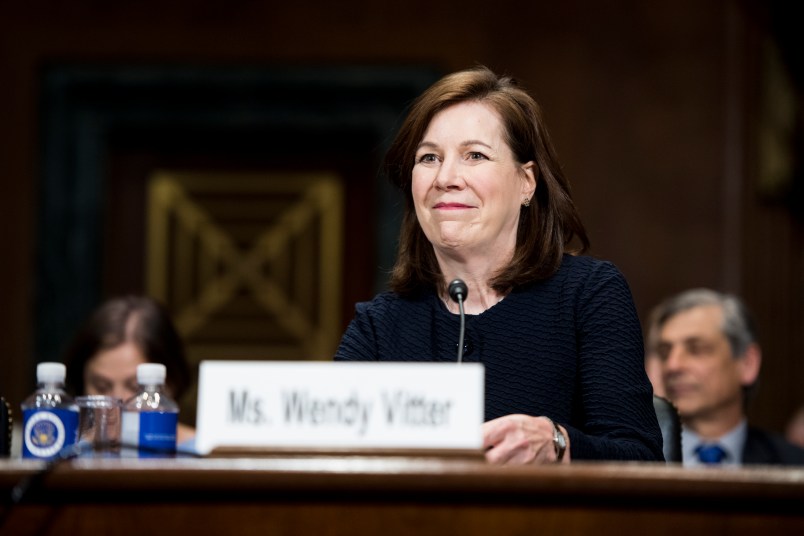During her Senate confirmation hearing on Wednesday, Wendy Vitter, one of President Donald Trump’s judicial nominees, refused to answer a Democratic senator’s questions about whether the landmark Brown v. the Board of Education Supreme Court ruling was correctly decided.
The seminal SCOTUS decision desegregated schools and changed the landscape of education in the United States with its 1954 ruling that state laws allowing “separate-but-equal” schools violated the Constitution.
When Sen. Richard Blumenthal (D-CT) on Wednesday asked whether the ruling was “correctly decided,” Vitter — who was nominated for a seat on the U.S. District Court for the Eastern District of Louisiana — dodged the question, saying she didn’t want to comment on any specific rulings. She claimed commenting would open up the door for critiques of her impartiality.
“I don’t mean to be coy, but I think I can get into a difficult, difficult area when I start commenting on Supreme Court decisions — which are correctly decided and which I may disagree with,” she said. “Again my personal, political or religious views I would set aside, that is Supreme Court precedent. It is binding. If I were to be confirmed I would be bound by it, and of course I would uphold it.”
Blumenthal asked her again if the monumental case was “correctly decided.”
“And again, I will respectfully not comment on what could be my boss’ ruling, the Supreme Court, I would be bound by it and if I start commenting on ‘I agree with this case or I don’t agree with this case,’ I think we get into a slippery slope,” she said.
While it is not uncommon for a judicial nominee to refrain from commenting on specific Supreme Court rulings — in 1986 Justice Antonin Scalia refused to answer questions about the pivotal Marbury v. Madison ruling, as CNN noted — the decision to dodge questions about the case that desegregated Americans schools raised eyebrows.
How can you be a federal judge and not state whether you agree with the unanimous 1954 Brown v. Board of Education decision outlawing segregation? Wendy Vitter is unfit for the federal bench. https://t.co/dykh78rdnr
— Keith Boykin (@keithboykin) April 12, 2018
Affirming the correctness of the desegregation ruling appears to be the exception to the impartiality rule for many judicial nominees. Justice Neil Gorsuch was willing to say that Brown v. the Board of Education was “a correct application of the law of precedent” in his 2017 confirmation hearing and Chief Justice John Roberts even offered praise for the decision during his 2005 confirmation.
“The genius of the decision was the recognition that the act of separating the students was where the violation was. And it rejected the defense — certainly, just a theoretical one given the actual record — that you could have equal facilities and equal treatment,” Roberts said at the time.
Watch a clip of the back-and-forth below, via CNN:







Look I’m tryin’ to dog whistle here and you drag it into the open .
Why do you think Trump nominated me ?
This exchange may be missing a larger point – are we sure this fool has even heard of Brown v. Board of Education?
Due to her judgement… as a tolerant wife? This is frmr senator vitter’s wife, I believe. She stuck by him - even after disclosures of prostitutes and preferences for diapers.
She seems, uh, clueless…
Perfect Trumpette qualifications…
I can’t even imagine how she’d feel about Roe V. Wade.
I hope someone followed up by asking whether she is willing to take a position on Dred Scott v. Sanford. Or Marbrury v. Madison.